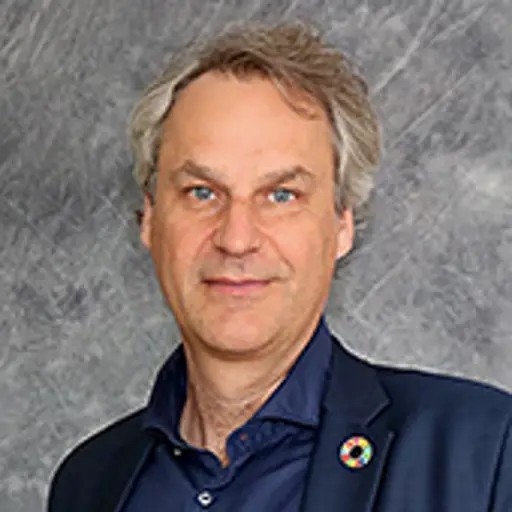The course syllabus contains changes
See changesCourse syllabus adopted 2020-02-19 by Head of Programme (or corresponding).
Overview
- Swedish nameSystemtänkande för hållbarhetsomställningar
- CodeSEE050
- Credits7.5 Credits
- OwnerMPTSE
- Education cycleSecond-cycle
- Main field of studyEnergy and Environmental Systems and Technology, Mechanical Engineering
- DepartmentSPACE, EARTH AND ENVIRONMENT
- GradingTH - Pass with distinction (5), Pass with credit (4), Pass (3), Fail
Course round 1
- Teaching language English
- Application code 28124
- Maximum participants20
- Block schedule
- Open for exchange studentsNo
Credit distribution
Module | Sp1 | Sp2 | Sp3 | Sp4 | Summer | Not Sp | Examination dates |
|---|---|---|---|---|---|---|---|
| 0120 Project 4.5 c Grading: UG | 4.5 c | ||||||
| 0220 Written and oral assignments 3 c Grading: TH | 3 c |
In programmes
Examiner
- John Holmberg
- Full Professor, Physical Resource Theory, Space, Earth and Environment
Eligibility
General entry requirements for Master's level (second cycle)Applicants enrolled in a programme at Chalmers where the course is included in the study programme are exempted from fulfilling the requirements above.
Specific entry requirements
English 6 (or by other approved means with the equivalent proficiency level)Applicants enrolled in a programme at Chalmers where the course is included in the study programme are exempted from fulfilling the requirements above.
Course specific prerequisites
SEE040 Leadership for sustainability transitions is recommended as this course in part is a continuation of SEE040.Aim
Many of the technical systems in society that engineers engage with throughout their career are facing large changes in their technological development, markets, legislation and user behaviors. In response to ambitious sustainability demands, it is no longer a question of marginal changes of existing systems but rather of replacing existing systems with new configurations. This need is emphasized in the United Nations Agenda 2030 "Transforming our World" with the 17 Global Goals for Sustainable Development. The purpose of the course "System interventions for sustainability transitions" is to increase students¿ abilities to work with systems innovation. Students will integrate different perspectives to map out and create in-depth understandings of complex socio-technical systems (e.g. systems for energy, mobility or food). In addition, they will explore solutions that challenge existing systems, and through dialogue with relevant societal actors and researchers, identify leverage points where interventions can contribute to desired change in the systems The course is preparatory for a potential master thesis in line with Challenge Lab, where regional sustainability challenges on a systems-level are addressed together with relevant stakeholders.Learning outcomes (after completion of the course the student should be able to)
1. Apply basic concepts connected to systems innovation
2. Identify, analyse and discuss challenges within current socio-technical systems in relation to future requirements for sustainability with backcasting
3. Reflect upon choices of different systems tools, as well as their possibilities and limitations
4. Create conceptual models of complex systems
5. Identify and define systems boundaries and scales within a system
6. Analyse cause and effect from a systems perspective
7. Identify reinforcing and balancing dynamic feedback mechanisms
8. Make a stakeholder analysis and lead dialogues in multi-stakeholder settings
9. Find strategic and relevant leverage points where initiatives can have large effects on a system
Content
This course combines historical and conceptual developments of systems thinking with practical application in a multi-stakeholder case for regional socio-technical sustainability transitions. The course starts with a general introduction to systems interventions for sustainability transitions including systems innovation, backcasting, transdisciplinarity and multi-stakeholder co-creation. This introduction is followed by deeper engagement with systems thinking including its historical development and central concepts, practiced through a hands-on real-world case in West Sweden.
Based on the static systems representation and stakeholder dialogue, the most interesting dynamics in the socio-technical systems are further analysed with its relations to the niches. Rough areas are selected where there might be potential for transformative change (systems innovation), either within the dominant systems configurations or for accelerating niche development. A detailed mapping is made in iterative manners to catch feedback mechanisms and other dynamics, to eventually identify leverage points where a small change can have larger effects. The selected leverage points are also based on stakeholder interests and larger trends in society (landscape level) to ensure the societal relevance and feasibility of the leverage point. The leverage points are then formalized into research questions with a selection of appropriate methods within a backcasting framework that can be brought further for a flying start of a master thesis in line with Challenge Lab.
Organisation
The course is organized based on a combination of lectures, a case and reflection:- Theory and Tools: Lectures and literature with introduction of tools.
- Case Work: A hands-on case where the tools are applied in real-world sustainability challenges in West Sweden.
- Reflection: A reflection paper on systems thinking encompassing the whole course where you will reflect upon the tools and their use in the case.
In comparison to SEE040, this course focuses on deepening and application of systems-related tools that are used in an extensive case that also can lead towards a research question for a future master thesis.
Literature
Course literature available in Canvas.Examination including compulsory elements
The course is examined through a group case and an individual reflection assignment.
The case stretches the entire course, is made in smaller groups, and consists of smaller submissions throughout the course, and a final submission. In the case, theories and tools from the course are applied in a real, socio-technical system.
The course syllabus contains changes
- Changes to course rounds:
- 2020-03-09: Examinator Examinator John Holmberg (frtjh) added by Viceprefekt
[Course round 1]
- 2020-03-09: Examinator Examinator John Holmberg (frtjh) added by Viceprefekt
